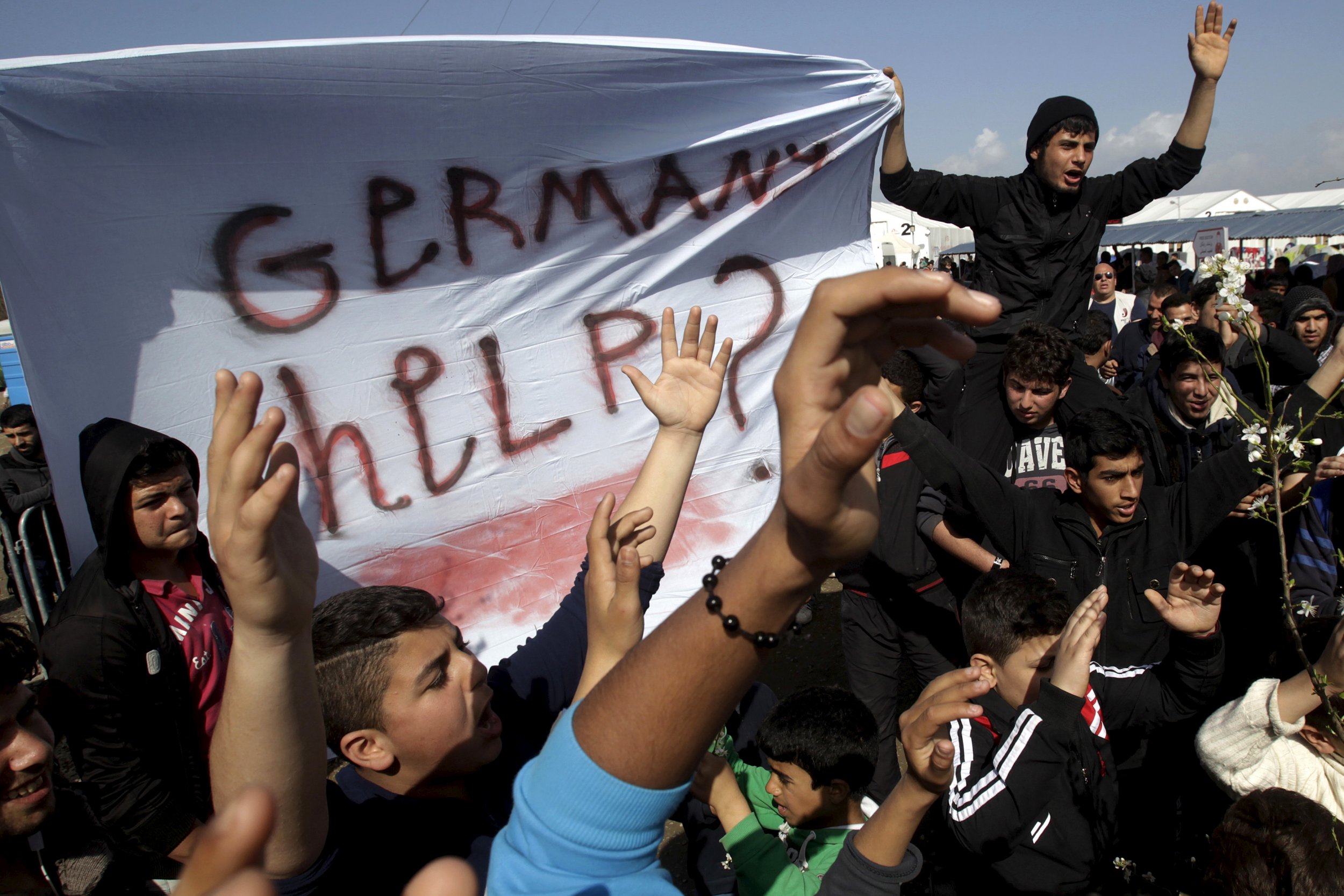
GENEVA/BRUSSELS (Reuters) - The build-up of thousands of migrants and refugees on Greece's northern borders is fast turning into a humanitarian disaster, the United Nations said on Tuesday as the European Union prepared to offer more financial aid.
German Chancellor Angela Merkel said clashes at Greece's border with Macedonia on Monday—when migrants battered down a gate and were tear-gassed—simply underlined the urgency with which the EU needed to act on the crisis.
But Austria—which last month limited the number of migrants it lets through to 3,200 a day—stuck to its position that it did not want to become an overcrowded waiting room for thousands wanting to make it further north.
Croatia, which is also on what is now the well-trodden migrants route northwards from Greece, said it might deploy its armed forces to help police control flows.
But near Idomeni, on the Greek-Macedonia n border itself, a tent city mushroomed, prompting some despair among those trapped there." Macedonia n police put us here, the Greeks don't want us back," Yase Qued, a 16-year-old from Afghanistan, told Reuters.
The United Nations High Commissioner for Refugees (UNHCR) called for better planning and accommodation for at least 24,000 it said were stuck in Greece, including 8,500 at Idomeni.
"Europe is on the cusp of a largely self-induced humanitarian crisis," U.N. refugee agency spokesman Adrian Edwards told a news briefing.
"The crowded conditions are leading to shortages of food, shelter, water and sanitation. As we all saw yesterday, tensions have been building, fuelling violence and playing into the hands of people smugglers," he said.
Migrants have become stranded in Greece since Austria and other countries along the Balkans migration corridor imposed restrictions on their borders, limiting the numbers able to cross.
Police chiefs from Macedonia, Serbia, Croatia and Slovenia, meeting in Belgrade, agreed to improve the system of joint registration of refugees to unblock gridlocks in Greece.
The burgeoning crisis adds to last year's chaos when more than a million migrants and refugees arrived in the EU, many fleeing the war in Syria and walking from Turkey northwards.
Some 130,000 have reached the continent so far in 2016.
Crisis Aid
The European Commission, the EU executive, said it would float a plan on Wednesday to offer emergency financial aid for humanitarian crises inside the 28-nation bloc - comparable with operations it has launched elsewhere in the world.
Commission President Jean-Claude Juncker spoke to Greek Prime Minister Alexis Tsipras on Monday and European Council President Donald Tusk was on a visit to Austria, Slovenia, Croatia, Macedonia, Greece and Turkey.
Tusk's tour comes ahead of a special European Union summit on the crisis next Monday. Germany's Merkel said television pictures of migrants desperate to make their way into western Europe via the Balkans drove home the urgency of the summit.
"The pictures show us clearly every day that there is a need for talks," she said after meeting Croatian Prime Minister Tihomir Oreskovic in Berlin.
The difficulty of reaching agreement on an issue which goes to the heart of public fears for security and safety in many countries was underlined by Austrian Chancellor Werner Faymann, who honed in on comments from German Interior Minister Thomas de Maiziere that suggested he thought Austria might wave through too many migrants.
"What is not acceptable is to say that they should definitely come and then the interior minister says he is against waving people through (to Germany)," Faymann told a news conference after a weekly cabinet meeting.
"Then how should they go to Germany?"
The UNHCR, meanwhile, urged all EU member states to reinforce their capacity to register and process asylum seekers through their national procedures as well as through an EU relocation scheme.
"Greece cannot manage this situation alone," Edwards said.
Despite commitments to relocate 66,400 refugees from Greece, EU member states have so far pledged just 1,539 spaces and only 325 people actually have been relocated, he added.
Uncommon Knowledge
Newsweek is committed to challenging conventional wisdom and finding connections in the search for common ground.
Newsweek is committed to challenging conventional wisdom and finding connections in the search for common ground.
About the writer
To read how Newsweek uses AI as a newsroom tool, Click here.








